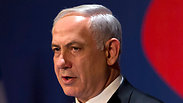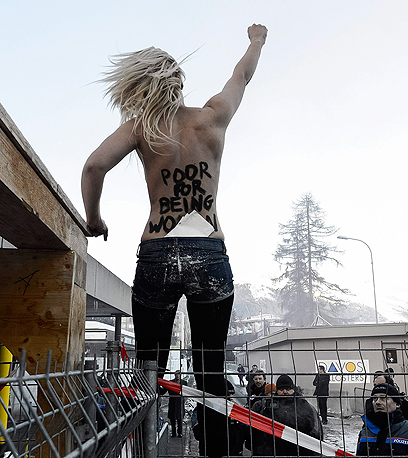
Netanyahu to talk strictly economics at Davos conference
Livni will hype peace talks warning that lack of agreement with Palestinians will be detrimental for country's wealth
But an even rarer sight will be seen at the annual World Economic Forum in Davos in the coming days – the prime minister and President Shimon Peres, together, representing Israel outside of the country's borders.
One high-ranking politician whose absence from the economic convention will be noted is Finance Minister Yair Lapid. There were rumors that Netanyahu didn't consult with Lapid, and therefore he pulled out of the meeting in protest.
"It seems to me that a country with eight million people will be sufficiently represented by a president, prime minister and another member of the government," he said, referring to Justice Minister Tzipi Livni. "I don't see that there's room for more expenses in this case."
Related stories:
- Israel's captains of industry fear boycott
- Op-ed: Israel's economy can't grow without peace
- Bloodied Syria, resurgent Iran to dominate at Davos
Due to the anticipated criticism Netanyahu would have expected to receive had he decided to focus on politics, he purposely decided that he will talk strictly on economics during the meetings.
The prime minister will discuss cyber aspects of Israel's technology, meeting with top executives from Yahoo and Google in an attempt to convince more and more leading companies to set up shop in Israel.
On her way to Davos on Wednesday, Livni warned that Israel's political stance will unreservedly affect its economic stance as well.
"Israel's isolation from the world will damage its security and the IDF 's legitimacy, along with the economy," she said. "Those that want to stop a peace deal on the basis of security concerns want us to act like in ostrich (with its head buried in the sand) against other threats."
In addition to the senior politicians, there will be 100 Israeli business executives making their way to Davos over the coming week. They will be touting the unified message of continued peace talks and ending the threats of boycott.
Gad Lior and Telem Yahav contributed to this report











